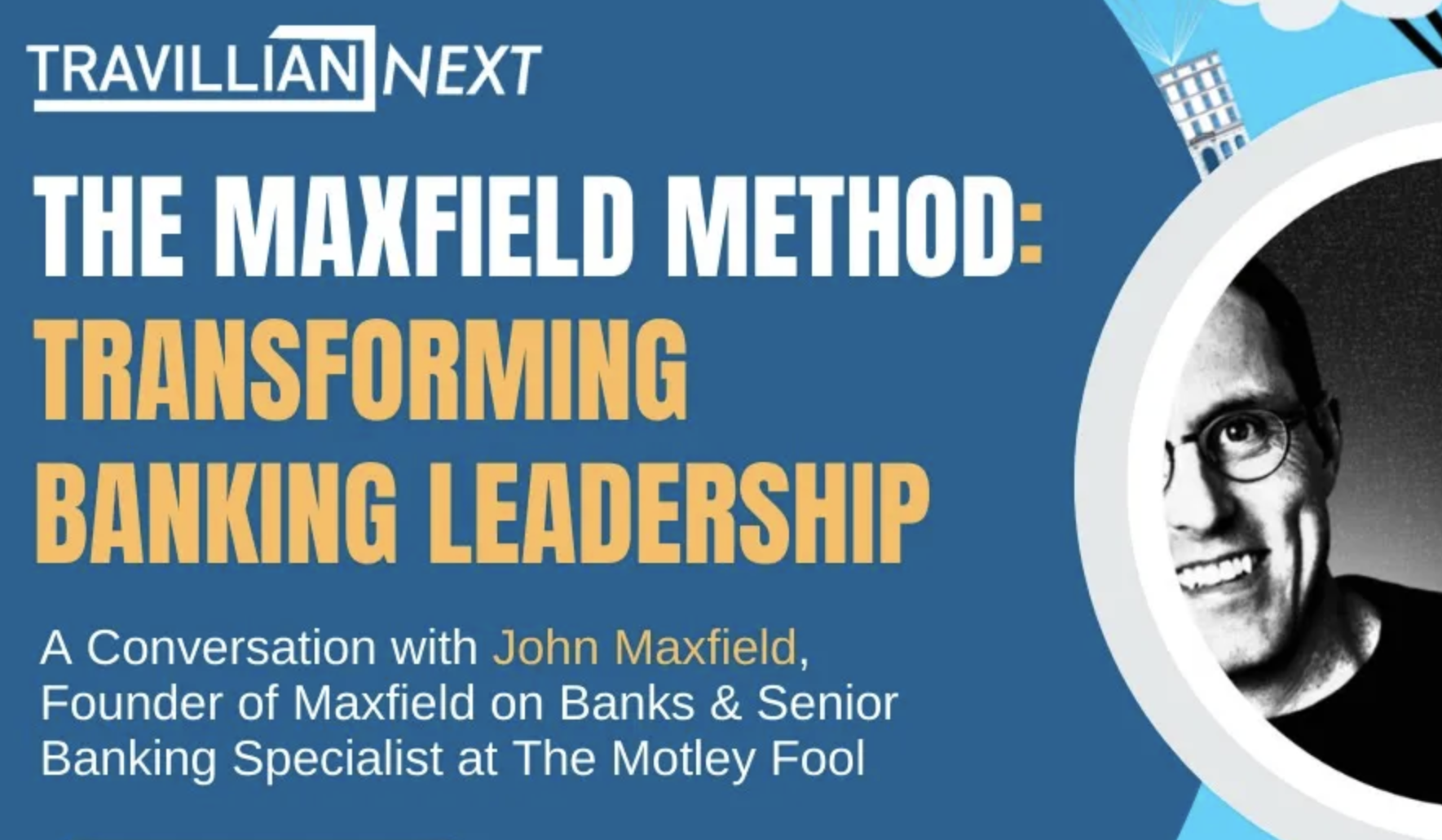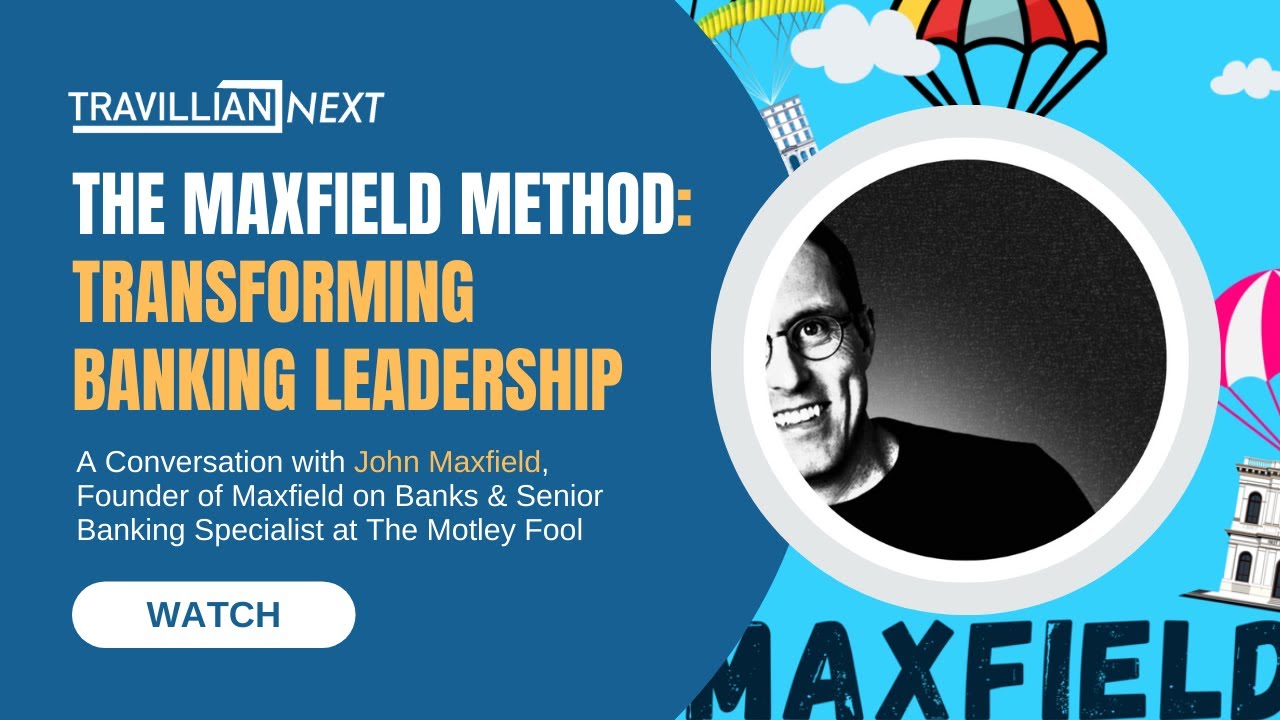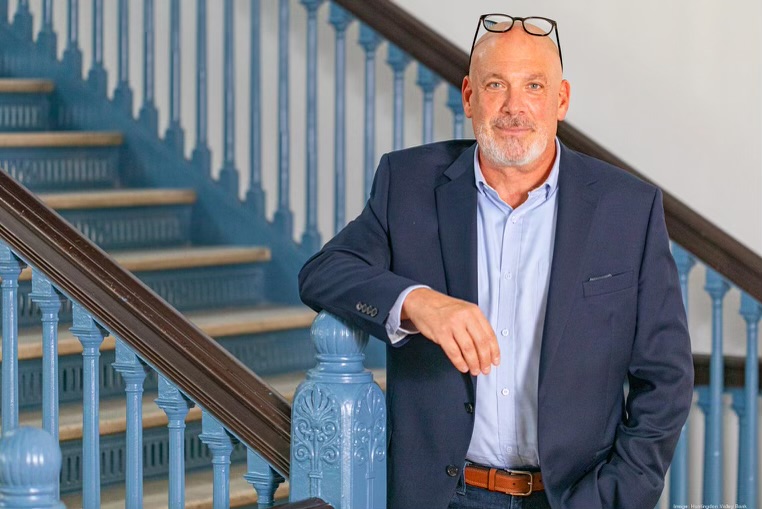John Maxfield, Founder of Maxfield on Banks and Senior Banking Specialist at The Motley Fool, discussed leadership and innovation in community banking with Travillian’s Brian Love, Head of Banking and Fintech. The conversation came on the heels of Maxfield’s recent Symposium on Banking in Dallas.
Maxfield describes himself as a scholar of the financial services industry, dedicated to mastering and sharing his knowledge about it. “I love banking,” he says. “I think it’s one of the most interesting intellectual subject matters I’ve ever come across.”
Maxfield on the Values of American Banking
Maxfield is passionate about the vital role that banking plays in society, emphasizing that banks are not merely financial institutions but also pillars of the community. “Bankers really stand at the narrows of the values of this country,” he states.
He asserts that bankers have been unfairly stigmatized and that their contributions to local communities and the broader economy are invaluable.
“Bankers are not these greedy fat cats who just try to make money off of other people’s money,” Maxfield insists. “These are the people who are most involved in every community that you go in, whether it’s a big community, a small community—whatever it is.”
Why Growth Management Is Crucial in Banking Leadership
Maxfield delves into the unique dynamics of banking leadership. Unlike other industries, banking’s supply and demand dynamics make it essential for leaders to monitor their growth appetites. This self-regulation requires exceptional leadership qualities, as leaders must resist short-term pressures for the long-term health of their institutions. “In the banking industry—unlike every other industry—the impetus for throttling your own growth is on you,” he explains. “It’s on you. Yourself. The bank CEO, principally.”
This need for self-restraint in the face of potential rapid growth is a critical test of a bank leader’s true capabilities. “Humans are not very good at throttling their own growth,” Maxfield notes, highlighting the internal and external pressures that bank leaders must navigate.
How Hardship Shapes Successful Bank Leaders
According to Maxfield, successful banking leaders fall into two categories:
- The “Lucky Gene Pool,” that has produced leaders like Jamie Dimon, who benefit from advantageous backgrounds and early exposure to the industry
- The Hardship Survivors, comprising leaders who have faced significant challenges or tragedies early in life. This group includes figures like Richard Davis, formerly of U.S. Bancorp and Mick Blodnick formerly of Glacier Bancorp, who have demonstrated resilience and long-term success.
“What I have found is that outside of that lucky gene pool category, the second category of people that have proven to be exceptional leaders of banks are those who have experienced tragedy or hardship early in life,” Maxfield notes.
Resilience and Adaptability: Key Traits of Effective Banking Leadership
He underscores that studying leadership over an entire economic cycle reveals these exceptional individuals. “When you study performance through an entire cycle, that leads you to a different set of leaders than when you study it in the short term.”
Case Study: Ross McKnight and C.K. Lee
Maxfield highlights Ross McKnight and his unique leadership style.
McKnight, who runs Dallas’ InterBank from his ranch, exemplifies the importance of resilience and adaptability. McKnight’s recruitment of C.K. Lee, a former regulator and investment banker, demonstrates a strategic and unconventional approach to leadership.
“When you look at C.K. Lee, you think; How is it that some rancher guy from the middle of nowhere in Texas decides that the next guy to run his bank is going to be some fancy pants investment banker? It’s crazy,” Maxfield remarks.
Lee’s background, including growing up in modest circumstances, aligns with McKnight’s values. His willingness to learn and innovate—especially in areas like balance-sheet management—underscores the transformative potential of this leadership style. “C.K. has a demonstrated willingness to learn,” Maxfield says. “He was open to watching Ross, reconsider decades of assumptions about securities and balance-sheet structure, and genuinely learn.”
Building Banks to Last: Why Resilience is the Cornerstone of Banking Leadership
Maxfield stresses the critical role of resilience in banking leadership. True leaders must resist external pressures and make decisions that prioritize long-term stability over short-term gains. This requires a deep commitment to fiduciary duty and the ability to navigate complex industry dynamics.
“What you must do as a leader is say, ‘Whoa. Okay. I get it. Everybody is telling me to do these things, but what I know is that doing it right now is the wrong thing to do,'” he explains.
Maxfield also highlights the industry’s high failure rate and the importance of genuinely committing to fiduciary duty against self-dealing. “There have been 17,000 bank failures since the country started,” he notes. “In my opinion, it’s because the vast majority of bank CEOs are not genuinely committed to the fiduciary duty against self-dealing.”
Brian Love’s video interview with John Maxfield—part one of a two-part conversation—is on the Travillian website. Banking+ will cover part two separately.




















